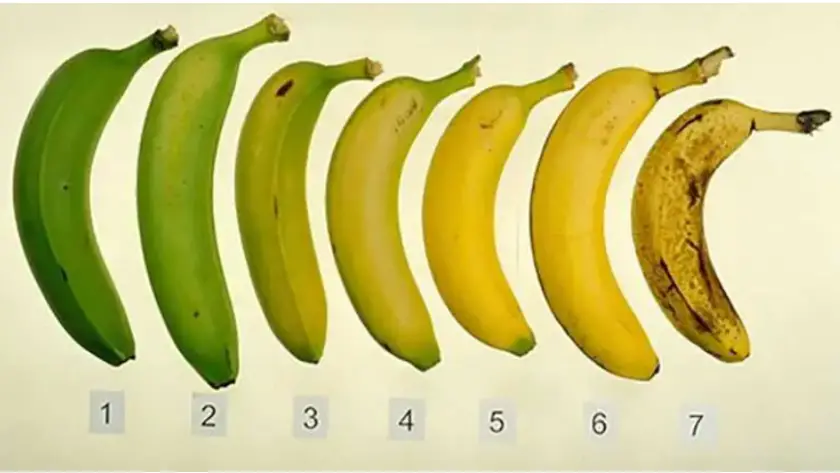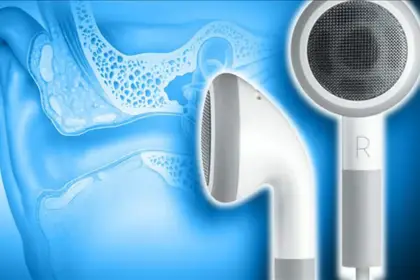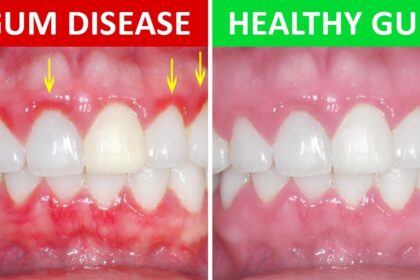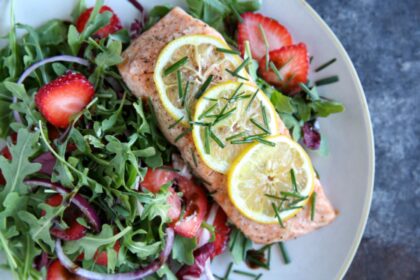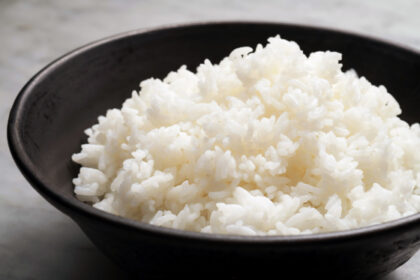Did you know that the nutritional composition of bananas undergoes changes as they ripen? You may have noticed that the riper a banana becomes, the sweeter it tastes. This is because enzymes in bananas progressively break down starch (a long polymeric form of sugar that lacks sweetness) into simple sugars (such as monosaccharides and disaccharides) that taste sweet. When a banana ripens, the conversion of starch into simple sugars makes it easier to digest. However, studies have indicated that the vitamin and mineral content of bananas tends to decrease as they ripen. To preserve the nutrient content, it is advisable to store ripe bananas in the refrigerator.
Japanese Reasearch Reveals How The Nutritional Value Of Bananas Change as They Ripen
Interestingly, recent research conducted by Japanese scientists has revealed a fascinating aspect of bananas. As a banana ripens, it produces antioxidants and properties that are potentially anticancer. A fully ripe banana, characterized by dark patches on its yellow skin, generates a substance known as TNF (Tumor Necrosis Factor), which has the ability to combat abnormal cells. Furthermore, the study suggests that the higher the concentration of darker patches on a banana, the greater its anti-cancer qualities. Additionally, it has been found that a yellow-skinned banana with dark spots is eight times more effective in enhancing the body’s immune system compared to a green-skinned banana.
Hence, it is recommended to consume bananas when they are fully ripe to benefit from their antioxidant and potential anticancer properties. However, if you have type 2 diabetes or wish to avoid a rapid increase in your blood sugar levels, you can consider eating a ripe banana with nut butter since the fat content slows down the absorption of sugars into the bloodstream. Alternatively, you can enjoy a banana while it is still slightly greenish, around level 3 or 4 on the ripeness scale depicted in the picture.
17 Health Benefits Of Bananas You Might Not Know
Bananas are an ideal on-the-go snack due to their convenience. However, their benefits extend beyond mere convenience. Below, we’ll explore 17 reasons why incorporating two bananas into your daily diet can contribute to optimal health.
- Blood Pressure Control: The potassium content in bananas helps eliminate excess sodium through urination and relaxes blood vessel walls, promoting lower blood pressure levels.
- Diabetes Prevention: Bananas offer protection against the development of Type 2 diabetes, according to nutritionist Laura Flores.
- Fat-Free Snack: With 0g of fat per serving or medium-sized banana, they make for an appealing low-fat snack.
- Kidney Stone Prevention: The potassium in bananas assists in preventing the formation of kidney stones, which can be painful to pass.
- Muscle Health: The potassium content in bananas supports healthy muscle function, making them beneficial for reducing muscle soreness and aiding in activities like running and yoga.
- Digestive Aid: Bananas are considered easy to digest and can replenish electrolytes lost during illness, making them suitable for individuals prone to stomach problems or diarrhea.
- Antioxidant Protection: Bananas are rich in antioxidants, providing defense against the everyday exposure to free radicals, including those from sunlight and skincare products.
- Enhanced White Blood Cells: Ripe bananas with dark spots have been found to be eight times more effective in enhancing white blood cell function, aiding the body’s infection-fighting capabilities.
- Weight Loss Support: Studies indicate that bananas are associated with weight loss over time, debunking the misconception that they cause bloating.
- Bug Bite Relief: The antioxidant compounds present in banana peels can help soothe skin irritations, including bug bites.
- Fiber Boost: Consuming two bananas for breakfast contributes to one-fifth of your daily fiber intake, with each banana containing three grams of fiber.
- Blood Sugar Regulation: Underripe bananas with resistant starch can help lower blood sugar levels.
- Immune Support: The probiotics in bananas can assist in reducing symptoms associated with colds and flus.
- Vitamin B6: Two bananas provide half of your daily vitamin B6 requirements.
- Vitamin C: With two bananas, you’ll get 30% of your recommended daily dose of vitamin C.
- Eye Health: Bananas contain Vitamin A, which can support healthy eyesight.
- Mood Enhancement: Bananas are rich in tryptophan, a precursor to serotonin, a neurotransmitter associated with improved mood.
Incorporating two bananas into your daily routine can provide a wide array of health benefits, ranging from blood pressure control to mood enhancement.
Bananas are a good source of potassium, which is an essential mineral that helps maintain proper heart and muscle function, supports nerve signaling, and regulates fluid balance in the body. In addition to potassium, bananas also contain other important nutrients such as vitamin C, vitamin B6, dietary fiber, and small amounts of other minerals like magnesium and manganese.
